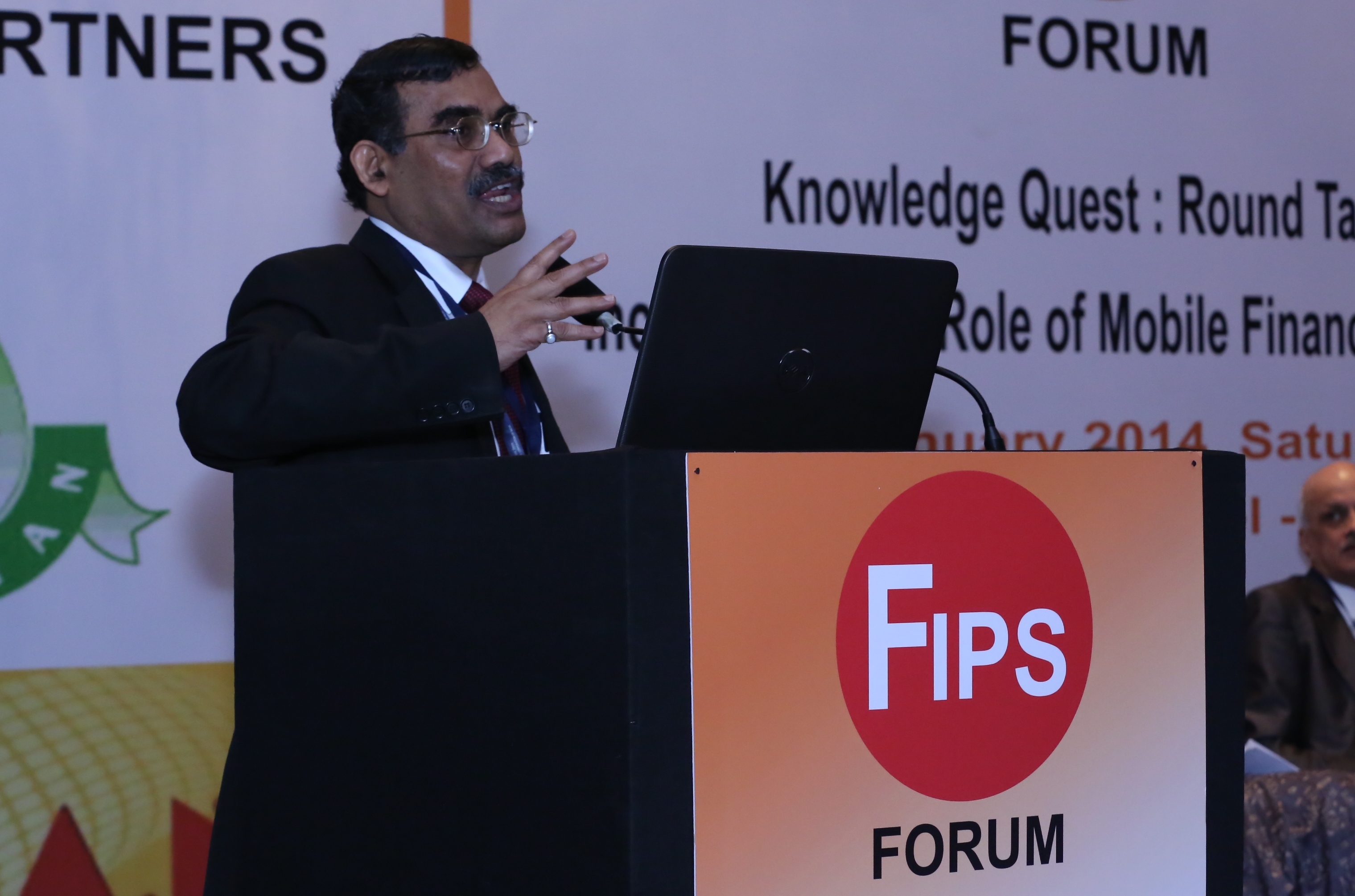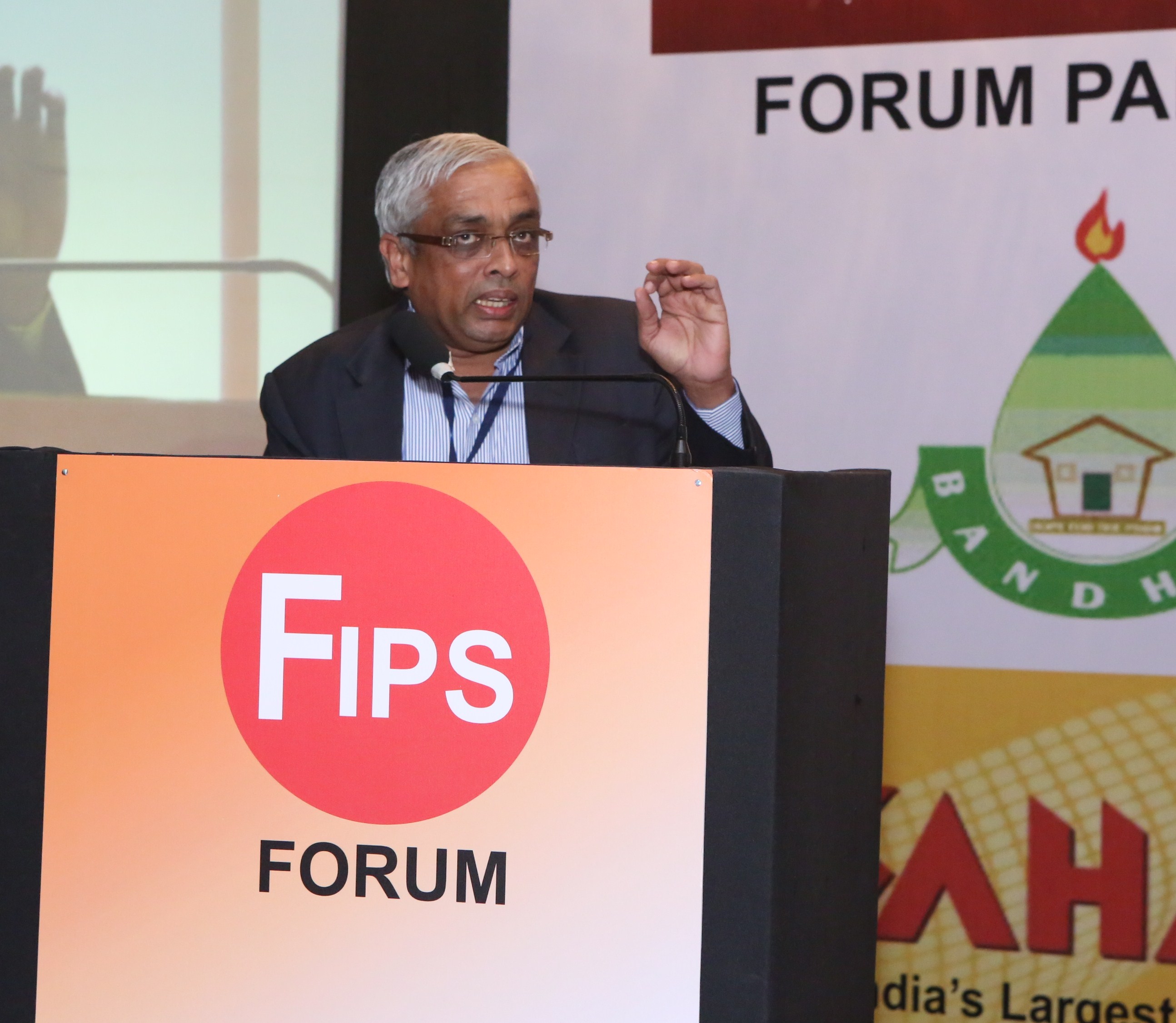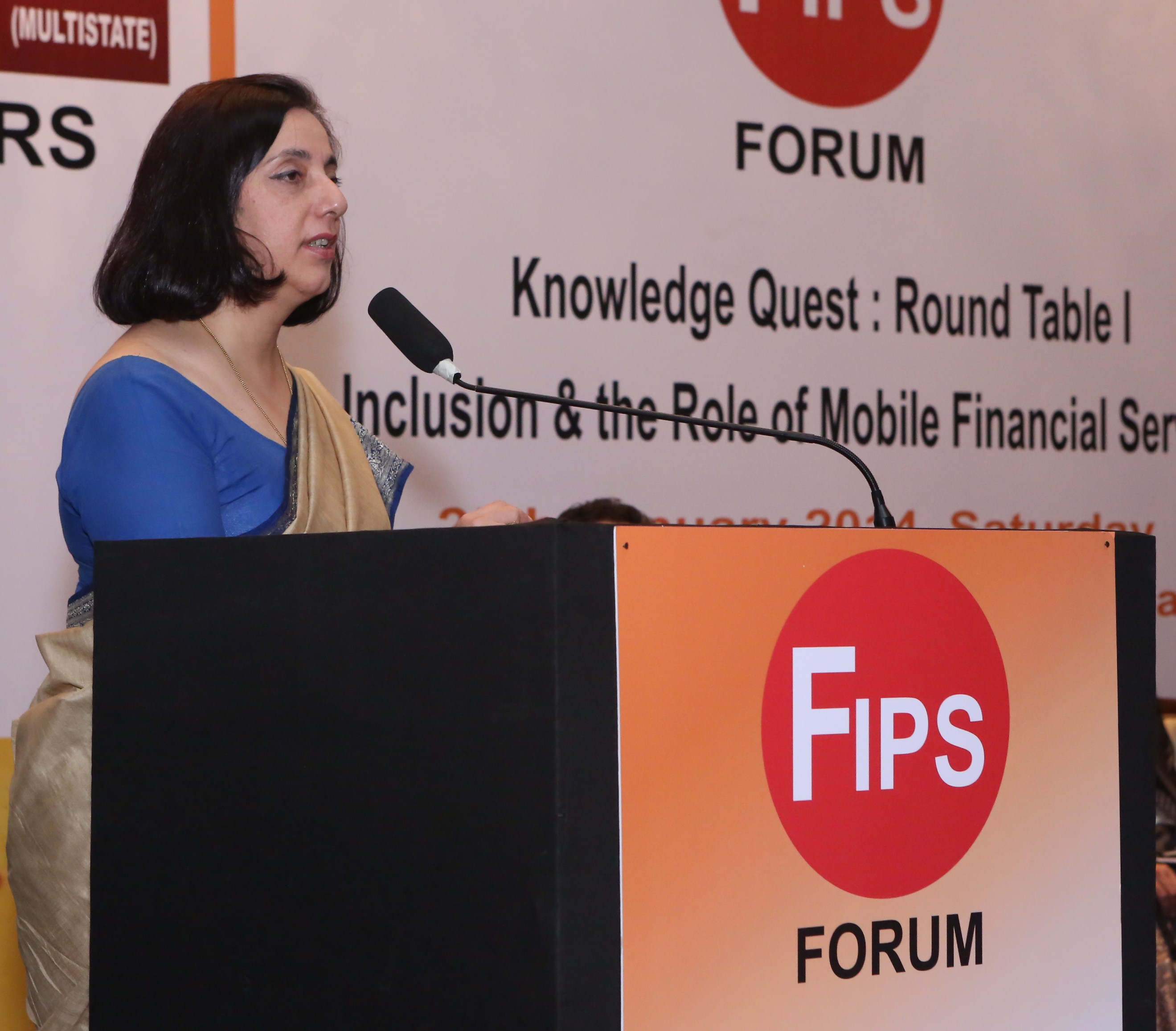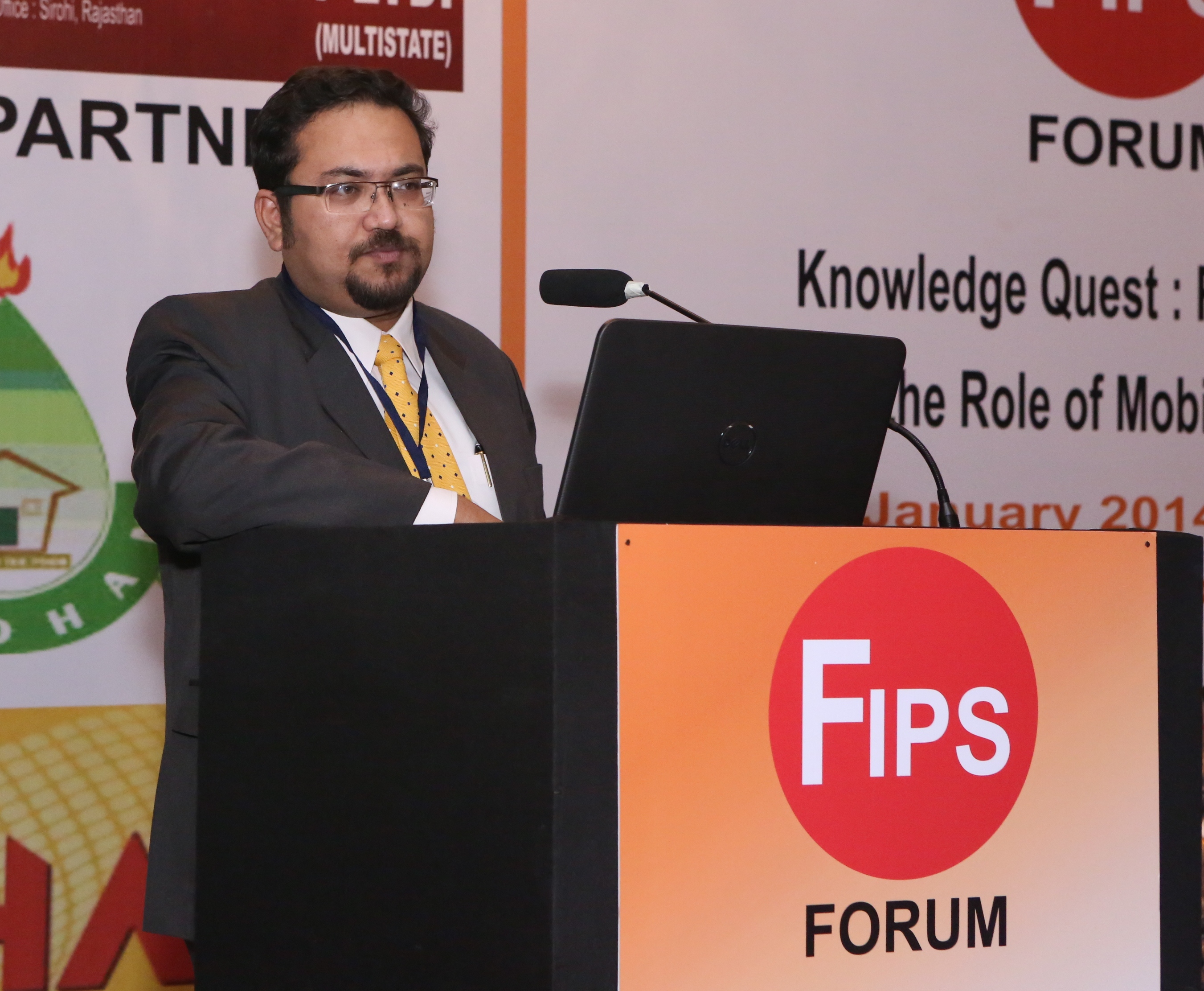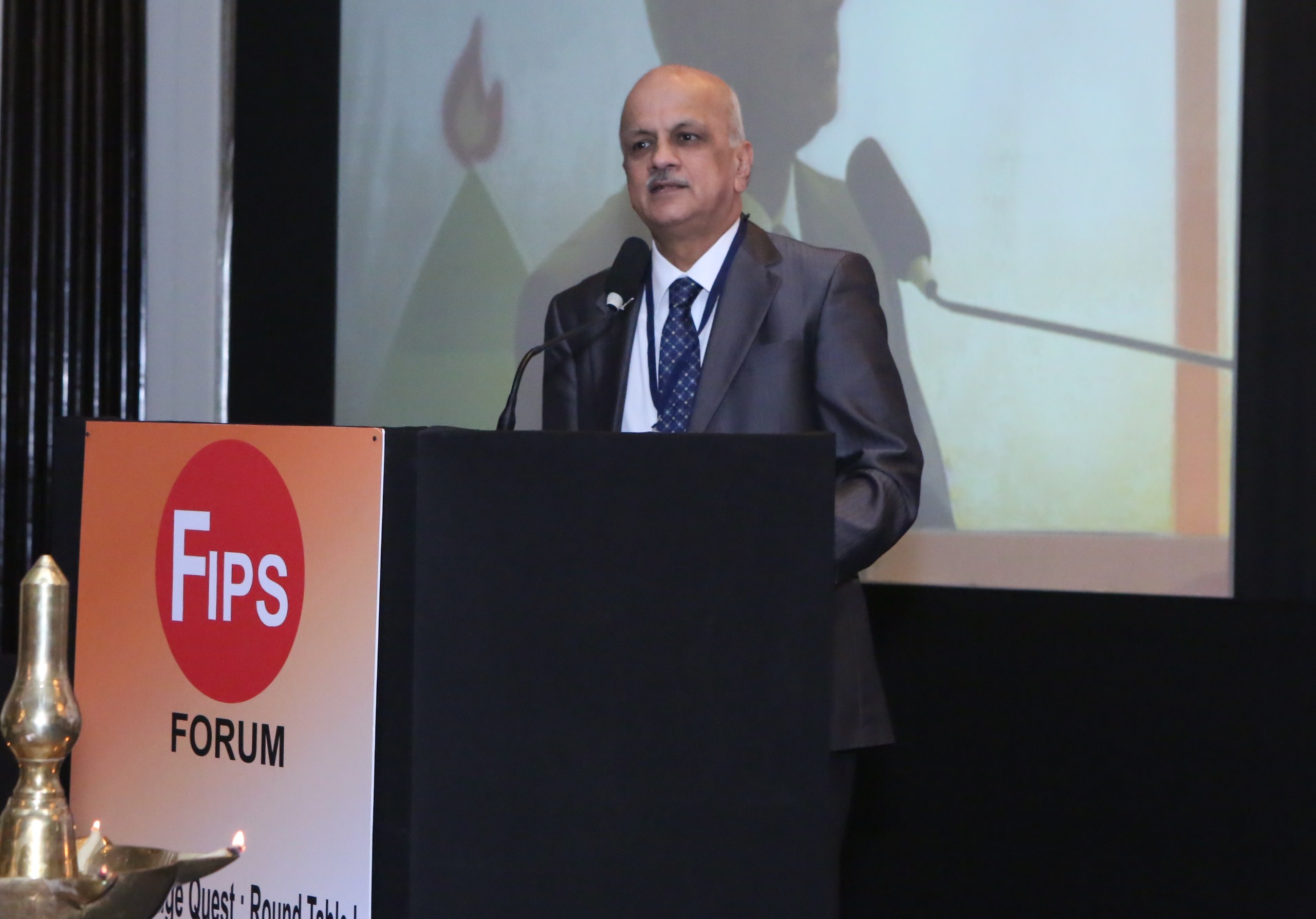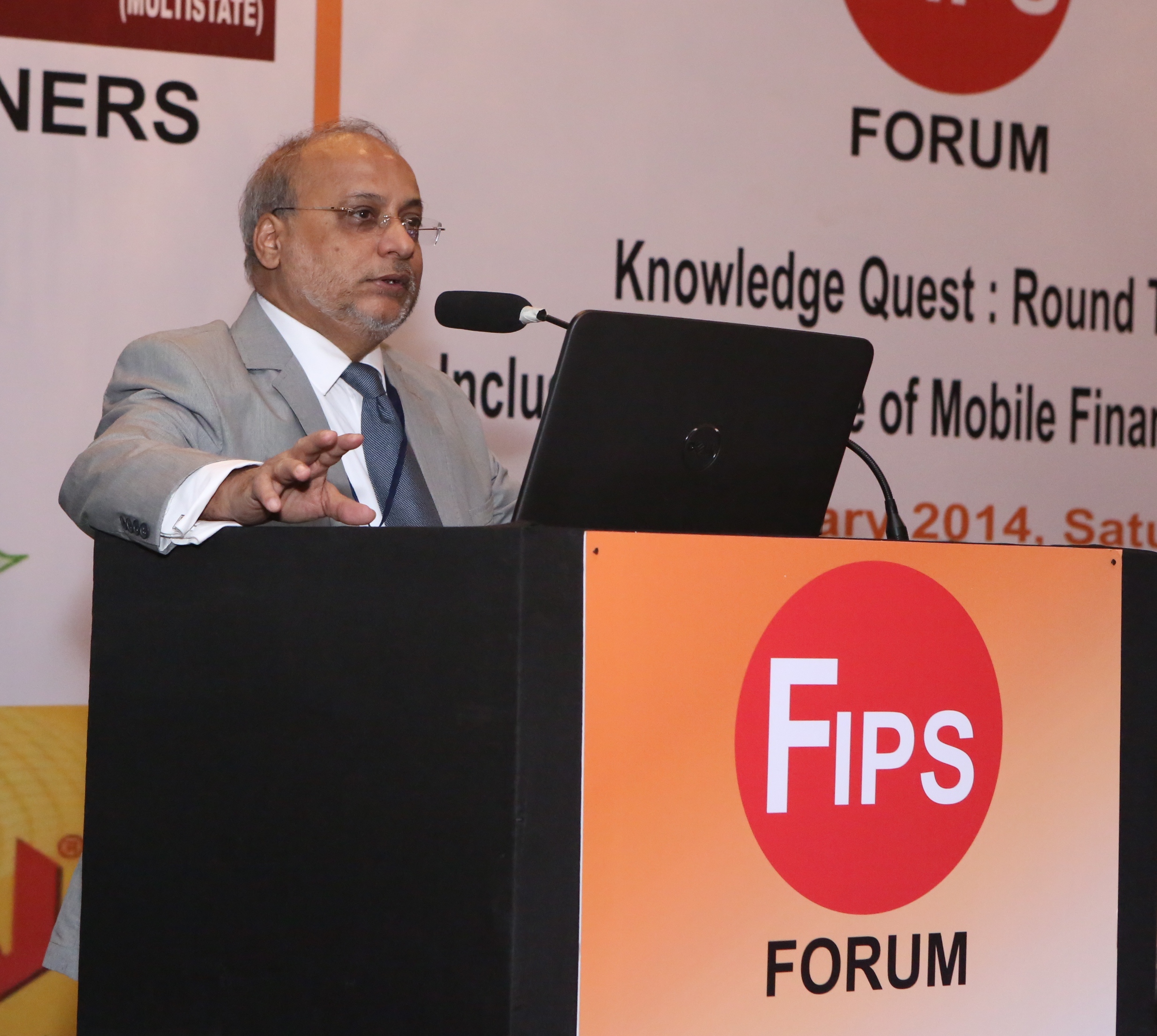25th January, 2014: Mumbai played host to the second FIPS conference, hosted by Prof. Rajanish Dass of Catallyst Constellations and Santanu Sengupta Convenor FIPS Forum. Earlier in Oct 2013, the first global conference on Financial Inclusion & Payment Systems (FIPS) had been inaugurated by Dr C Rangarajan, Chairman, Economic Advisory Council to the Prime Minister, Government of India, in Delhi.
Eminent speakers at the second conference included G. Padmanabhan, Executive Director, Reserve Bank of India, R Chandrasekhar, President, NASSCOM, AP Hota, CEO, NPCI, Suresh Sethi, CEO mPesa, Vodafone and Shailesh Baidwan, CEO, Amex.
Dr. Partho Sarathi Shome, Adviser to the Finance Minister addressed the dignitaries via a video feed. He indicated that financial inclusion needs to be extended to all geographical extents in the country and must include people from all sections of the society.
Prof. Ashima Goyal, Professor, IGIDR, in her address said, “Mobile technology is naturally inclusive because it’s not cost intensive, as opposed to internet technology which, even in a city like Mumbai, is not of the best quality, though expensive.”
AP Hota, CEO, NPCI (National Payments Corporation of India), who delivered a practical and impactful speech, stated, “Active mobile users in India is between 500 to 600 mn. 90% of these people (roughly 400mn users) have bank accounts. Of these however, only 67million mobiles are linked to their bank accounts. Even though the RBI has mandated SMS alerts for every transaction, mobile-based payment systems will take off only when each and every existing customer is serviced better.”
He also spoke about simplifying mobile application downloads, and shared how a *99# could be a potential USSD (Unstructured Supplementary Service Data) service for balance enquiry and remittance, making mobile access and usage simpler. Adding to these views, he mentioned how language plays a crucial role in this field. We cannot expect any inclusion without having systems in local languages.
Mehboob Chowdhary, Chairman, Citycell, Bangladesh and Board Member FIPS, shared that the success story of financial inclusion lies in enabling vulnerable people to explore financial services. 99% of Bangladesh is on pre-paid mobiles. Hence mobile licenses are not given to the mobile companies, but to banks who open the transaction centres. “
Citing an example of how 500 women in Sabarkantha village in Gujarat were able to pull a Dena bank branch to open locally, Meera Sanyal, Former Chairman, RBS, spoke about the business opportunity for financial inclusion, and how technology could make a difference.
R Chandrasekhar, President, NASSCOM, complimenting Mr.Hota for having a tight grip on numbers, said, “A standards- based, agnostic regulation is key for the success of Mobile Financial Services. Another aspect is scalability, which calls for sound business models, innovation and healthy competition. This would call for a common institutionalised format that includes the views of the two regulatory bodies –TRAI and RBI.
The panels through the day also discussed the vibrant eco-system of start-ups venture capitalists and innovators in India, who have together formed a nascent silicon valley of sorts in India.
There seemed consensus that Mobile Financial Services make business sense, and they will improve access to credit and spread the financial system, where it is currently not available.
The adoption of mobile financial services, globally, has been confined to a few countries where access to financial services has been historically constrained and the scope of services limited to mobile money transfer. This could be likened to mobile phones and having good penetration in rural India.
G Padmanabhan, ED, RBI congratulated IRCTC on being the biggest provider of ecommerce today. In that context, he added, “When we talk about a new point- affordability is important- nobody expects charity. Mobile Financial Services (MFS) have to take into account customer enrolment, simplicity of technology and support from policy.”
“The FIPS forum, and the discussions therein have indicated a clear business case for financial inclusion. The framework for FIPS should be sound technology, simplicity and farsighted regulations”, added Rajanish Dass, Jt-Convenor FIPS Forum.

